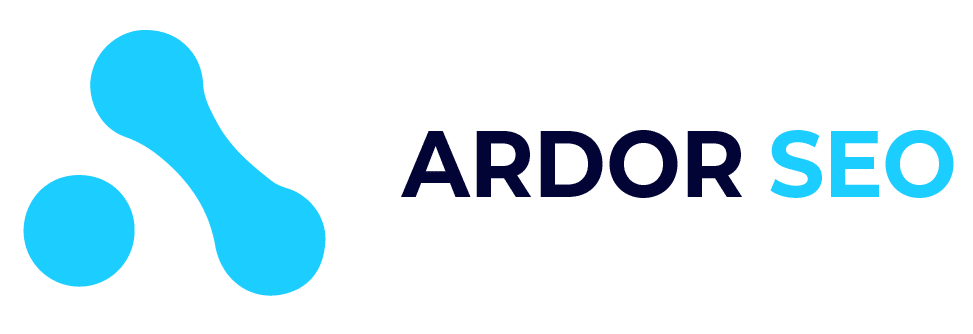Single page optimization is an excellent way to boost the visibility of your website. Making small but impactful changes will help Google pick up your page and rank it higher, driving more organic traffic to your site.
Generating more organic traffic may seem like hard work, but in reality, you need to know the right formula and what the boffins at Google want to see. Single page optimization methods are explicitly designed to complement engaging content, boosting traffic using the expertise of digital marketing strategists.
An example of single page optimization in action is an article about the real Wolf of Wall Street, Jordan Belfort that we did for Noah Kagan’s blog.
This is one of our many specialties so if you would like to see how we manage to increase organic traffic to particular pages on sites, then read on!
How SEO for one page can make a difference
You may think, “how can optimizing just one page make any real difference?”. Well, it does, and here is why. Google uses a complex web of algorithms designed to search and find the most relevant web pages for their customers.
The algorithm looks for key information to help it decide which web page is the most useful for the billions of search terms used by internet users. Knowing how the algorithm works and what it wants to find helps us determine the best single page optimization practices.
The golden rule is always to create highly engaging and useful information for your visitors. Then, there are plenty of other things you can do to help a single page improve its chances of ranking higher on the Search Engine Results Page (SERP).
The closer to the top of the SERP, the more organic traffic we have a chance of receiving. So, what do we need to do to optimize a single page?
What do you need to do to optimize a single page?
There are many ways to go about single page optimization for SEO. Once you get started with SEO for your website, you will soon begin to see improvements in your web pages’ performance.
Below are the top 10 best practices that you should focus on.
Create Relevant, Authentic, Engaging, and Valuable Content
You can use every single SEO trick in the book (and there are a lot!), but if you don’t create highly engaging, authentic, and valuable content for your visitors, then your efforts are futile.
Google’s algorithm is stressing more importance on these factors every day. As a business, Google wants to ensure that it’s users are getting the very best experience possible.
To do this, it has created complex algorithms to find the very best web pages for each query it receives.
Your content must add some value to your visitors’ lives. It must directly answer their query, give them food for thought, and prompt them to share your content because it is so good.
The more authentic and engaging your article, the more useful it will be to your visitors. Google wants to see web pages that provide real information about topics that genuinely help its users.
If you succeed in creating top-quality content that ticks all the boxes, your web page’s success will snowball. The more it will be shared, linked, discussed, and read by users online.
Google will quickly pick up on this, and you will get rewarded with a top spot on their SERP. Once you have the top spot, achieving your business goals online will become significantly easier.
Word Count Improvement
Depending on the targeted keywords you are aiming to rank for, your page’s word length will vary. One useful way to determine what length Google requires for your page is to check out the competition.
To do this, you will need an SEO tool like Ahrefs or Moz. There you can use a special tool that will allow you to search for your keywords. Once the reports are generated, you will get access to your competitors who are already ranking at the top of the SERP for your keywords.
You may find that your competitors all have a word length of around 1800-2000. If your current page you wish to get ranked is only 250, you will need to add 1550-1750+ words to compete.
The more information on the page, the more information Google has to scan for relevance, making it easier for the search engine to rank your page. When adding to your word count, ensure that you are only adding valuable, relevant, and engaging copy.
As Google’s algorithms evolve, the need for valuable and relevant content is becoming the single most significant factor in ranking well on the SERP.
Meta Tags
Meta tags are how your page is described to search engines and website visitors. They’re either built into the code behind your website or can be seen in the description on the SERP (meta description).
Various meta tags need to be considered. The most important meta tags are the meta title and meta description.
Meta Title
The meta title is the bold and blue title of a website that appears in the SERP. They’re the first impression users have of your website and how search engines understand what your page is about.
To optimize your meta title, make sure it is between 50-60 characters long, and includes your primary keyword. Utilize powerful and emotive words too. You can find many free tools online to help you.
Meta Description
The meta description is the short description under your meta title on the SERP. A user may decide to click your URL based on the meta tag description. If the description isn’t clear, you may lose a potential visitor.
To optimize your meta description, make sure it is between 120-160 characters long, and includes your primary keyword. It needs to entice people to click the URL, so try to use persuasive and engaging language.
FAQ Schema
Search engines are all about searching for answers to queries. That is what they were built for, so it only makes sense that adding an FAQ Schema to your page will boost your SEO.
An FAQ Schema is simply a list of questions at the bottom of your page, which answers the important question related to the page’s content with the answers underneath.
Google and other search engines can then pick up on this FAQ schema and display it for people on the SERP. You may have seen that you are given some FAQs directly below the top search result when you search for a query on Google. This is the FAQ Schema.
It’s a quick and straightforward way for people to find the answer to their query and give your website an extra chance of getting a click if the user wants to find out more.
URL Change
Your URL, which is the full web address that appears in your browser’s top bar, should be simple and include your keywords.
Simple so that people can remember the URL and include the keywords so Google can help rank it higher on SERP.
Headers
Headers are vital for SEO purposes, and you must get it right. There are different types of headers that require different rules.
H1
The H1 is your main header within the content of your page and should only be one H1 on a web page. The H1 should describe what the content of the page is about and should be between 90-100 characters.
Make sure you use enticing language and include your primary keyword. It is usually placed at the very top of the page or directly underneath your intro paragraph.
H2’s
H2’s are used for your secondary keywords and help you to structure your article clearly and concisely. Think of them as section headlines. A web page with good H2’s should be easy to scroll down, navigate, and finding the information should be easy for the user.
H3’s
H3’s are used as subsections within your H2 sections. They’re very helpful for making your content easier to read and digest. They’re there to help you organize the content for H2’s.
H3’s don’t require any keywords and should be around five words long.
H4, H5, and H6’s
These three headers are to help further organize your content. Use sparingly unless you are creating long-form and information-rich web pages that require them.
Number of Elements
Elements can include anything from the number of headers to the number of words in bold or the number of images used. It’s a good idea to mix your content to make it look fresh, engaging, and readable.
If you have web pages that are very long with a few headers, no bolded words, no quotes, no images, and so on, you can bet people will get very bored with our content very quickly.
Think about spicing your content up by using elements to your advantage. Try using:
- The primary keyword 3-4 times per 1500 words.
- The secondary keywords 1-2 times per 1500 words.
- Large and beautiful images.
- 0-70 words in bold.
- 4-18 headers (H2-H6).
- Display quotes with important information.
- Embed relevant videos where necessary and useful.
- Use bullet lists.
- Use a legible font that is between 12px-17px.
- Utilize quick summary boxes for those with no time to read everything.
Get creative with the elements you have at your disposal. Your main goal is to make your web page engaging, fun to digest, and easy to read.
Internal & External Links
Internal Links
Descriptive internal links allow Google to create a clearer picture of what your content is about and how relevant and useful it is. Think of internal links as building a story between all your content.
Let’s say you write a blog post about “The Top 5 Cat Toys” one of the toys is stuffed with catnip, so you link your existing article on your website titled “Why Cats Love Catnip.” This is a relevant and useful link that Google wants to see from your content.
External Links
Your content should be supported by several external links. These are links to authoritative websites with high domain authority that backup your claims. Google values authoritative external links as it boosts the credibility of your content.
Users also want to see backups to your claims to ensure that they can trust what you say. Websites that are worth linking to include .gov, .edu, and .org.
Adding Transcript
If your content includes a podcast or video, it may be worth providing a downloadable PDF transcript. Not everyone has the time or the place to sit and listen or watch video/audio content.
A PDF allows users to read, study, and make notes on what was said during the podcast or video. It also helps boost SEO as the transcript includes a ton of written content that Google can pick up on and rank you for.
Big Beautiful Images
Users love to see them, and Google loves to read the information behind them. Images are essential and play a vital role in the SEO of your web pages.
You can optimize your images by adding to the Alt-Text in the code behind the image. This is relatively simple on most website software. You should be able to find a place to enter the alt-text when adding an image to your page.
For best practice, use the alt-text to describe the image and use a keyword. This will tell search engines that the images relate to a specific topic. Alt-text can seriously help your page rank on search engines, especially when millions search for images every day.
Final Thoughts
Once you create authentic, engaging, and valuable content for your visitors or customers, it’s now time to use single page optimization to take your content to the next level.
Using the SEO practices listed out in this article, you can ensure that your content has the best chance of ranking high in search engaining visibility ranking search engines. Single page optimization is merely giving your web page the best chance to rank high on the SERP. If you are a real estate agent like Avery and you are looking for a real estate SEO company, hit us up!
In today's world, digital experts are affordable and employ teams of experienced professional IT and content professionals. Our team is a vibrant mix of talented real estate professionals and writers who live, breathe, and create an all-things-real estate. If you find yourself too busy or overwhelmed by the things you must do to soar to the highest visibility to both buyers and sellers in your area, don't be shy - discover real estate SEO experts.







